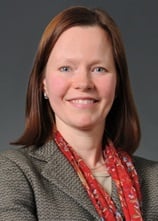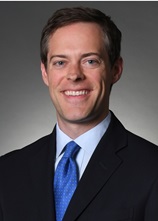Announcements
Sidley Secures Securities Litigation Victory on Behalf of NovoCure
Sidley successfully defended global oncology company NovoCure Limited against a putative securities class action filed in the U.S. District Court for the Southern District of New York. On March 18, 2025, the court granted defendants’ motion to dismiss in full, holding that plaintiff had failed to allege both falsity and scienter.
In January 2023, NovoCure announced positive top-line results for a pivotal clinical trial in lung cancer patients. Six months later, NovoCure presented full clinical trial data at a medical conference. Following the conference, the company’s stock price dropped. Investors sued, claiming that the company misleadingly omitted purportedly negative details about trial data when it announced top-line results. According to the lead plaintiff, the positive results could have been driven by a skewed distribution of patients, with patients predisposed to do well disproportionately clustered on the treatment as opposed to the control arm.
The court granted defendants’ motion to dismiss in full, holding that plaintiff failed to allege both falsity and scienter. The court fully embraced Sidley’s argument that plaintiff’s theory was at its core a critique of trial design: Plaintiff faulted NovoCure for its optimism about trial results while allegedly failing to stratify patients between the treatment and control arms and failing to obtain complete data showing that the trial’s randomization processes worked appropriately. The court agreed with Sidley that investors cannot state a fraud claim based on the assertion that a clinical trial should have been structured differently, or that their interpretation of trial results is superior to the defendants’ interpretation. The court rejected plaintiff’s argument that his claim was based on purportedly false statements rather than a critique of faulty science: The falsity allegations depended on plaintiff’s assertions about science and medicine. The court also agreed that plaintiff failed to allege scienter. Among other things, the stock trades on which plaintiff relied were non-discretionary, and the fact that the company planned additional clinical trials was consistent with medical and scientific progress—not fraud.
The district court’s decision is a significant victory not only for NovoCure but for any drug or device developer facing securities fraud claims based on the assertion that it described trial results in overly positive terms. The court embraced the argument that such claims would require courts to adjudicate matters of science and medicine, which is beyond the courts’ province. The court stated that “[s]ecurities law is simply not a vehicle through which courts will police disagreements in the cancer research community or the parameters of clinical trials.” In response to plaintiff’s suggestion that uncertainty about patient skew could compromise commercial uptake, the court wrote: “Industry uptake may be the ultimate goal, but reasonable investors understand that a trial can be considered a success merely by demonstrating a step in that direction.” Citing Isaac Newton, the court noted that “scientists for hundreds of years have acknowledged that their breakthroughs stand on prior progress.”
The Sidley team included Hille Sheppard (Chicago), Francesca Brody (New York), Robin Wechkin (Seattle), and Tom Collier (Chicago).
Capabilities
Suggested News & Insights
- Stay Up To DateSubscribe to Sidley Publications
- Follow Sidley on Social MediaSocial Media Directory



